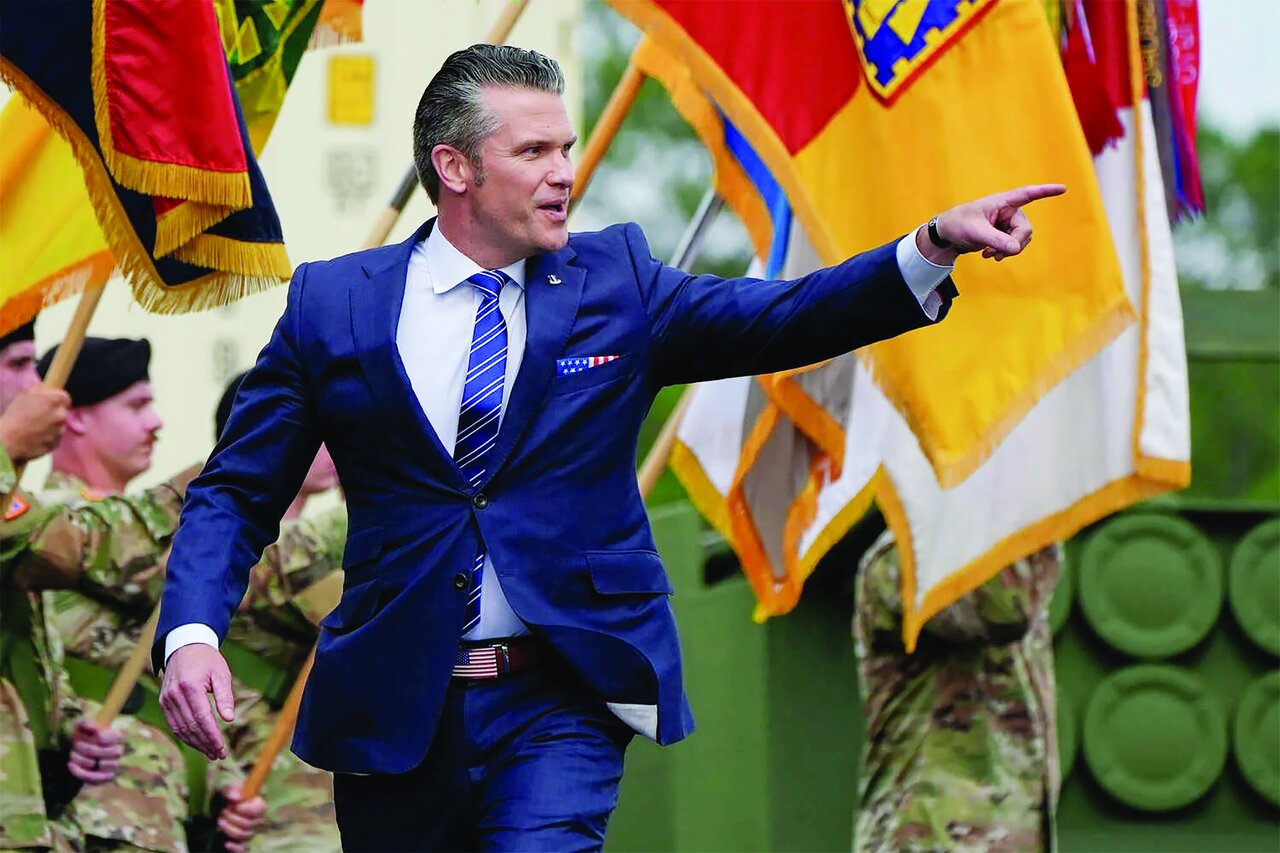War or peace: What Hegseth and Trump signal

TEHRAN – U.S. Secretary of War Pete Hegseth delivered a speech on Friday that left no ambiguity: the United States is not seeking to avoid war — it is actively preparing for a global confrontation. Speaking at the National War College, Hegseth compared today’s world to 1939, the year World War II began, and 1981, when Cold War tensions surged. These weren’t just historical references — they were warnings. And more than that, they were a roadmap.
Just weeks earlier, on September 5, President Donald Trump signed an executive order officially renaming the Department of Defense as the Department of War. The change allows the use of the new title in official communications and gives Hegseth the authority to use “Secretary of War” in his role. Hegseth embraced the new name throughout his speech, signaling a clear break from the language of defense and diplomacy — and a move toward open confrontation.
This symbolic shift is more than branding. It indicates that the United States is openly embracing its role as an aggressor on the world stage.
U.S. war machine
Hegseth didn’t just talk about foreign threats. He turned his fire inward, calling the Pentagon’s own bureaucracy one of America’s “greatest adversaries.” He blamed slow planning, oversight, and regulation for holding back military readiness. His solution: strip away checks, fast-track weapons contracts, and hand power to private arms manufacturers.
This is not reform — it is militarization without restraint. By dismantling internal safeguards, the U.S. is clearing the path for unchecked escalation. It is building a war machine designed not for defense, but for domination.
Escalation by design
President Trump continues to claim he wants to end America’s “forever wars.” But his actions tell a different story. Recently, he authorized the first U.S. nuclear weapons tests in over 30 years — a reckless move that threatens to reignite a global arms race and destroy decades of nuclear restraint.
The U.S. is not reacting to threats. It is manufacturing them. It is not defending peace. It is preparing for empire.Back in June, Trump approved direct strikes on Iran’s nuclear facilities in coordination with Israel. At the time, the U.S. denied involvement in Israel’s June 13 assault. But on November 6, Trump publicly admitted he was “very much in charge” of the operation. This admission confirmed what many already suspected: the United States is not a bystander in the region’s violence — it is a central actor.
U.S. addiction to war
Hegseth’s reference to 1939 is no accident. It fits a long and bloody pattern. From Hiroshima to Vietnam, Iraq, and Afghanistan, the United States has repeatedly cloaked its wars in the language of peace and freedom. Each time, it claimed to be defending democracy. Each time, it left behind ruins, graves, and chaos.
Today’s actions — strikes on Iran, military buildup in Asia and Europe, push for nuclear weapons testing — are not isolated. They are part of a deliberate strategy. The U.S. is not reacting to threats. It is manufacturing them. It is not defending peace. It is preparing for empire.
In Europe, NATO drills near Russia’s borders have provoked Moscow. In Asia, U.S. warships near Taiwan and the Philippines have drawn sharp warnings from China. In both regions, Washington is playing with fire — and dragging the world toward the brink.
A blueprint for world war
In his Friday speech, Hegseth didn’t say the words “world war.” But his comments laid out the conditions for one: a dismantled bureaucracy, a rearmed military, a sidelined diplomacy, and a global map of enemies. Trump’s actions — from nuclear escalation to overt and covert strikes — match that vision.
Hegseth’s speech and Trump’s decisions point to a grim future. The United States is not trying to prevent war. It is preparing for one — and not just any war, but a global one. By reviving Cold War rhetoric, accelerating arms production, striking Iran, and confronting Russia and China, American leaders are laying the foundation for a conflict that could engulf the world.
Leave a Comment